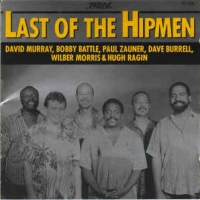Is this a surprise? Spotify and similar reduce music purchases
A recent report says that streaming services such as Spotify reduce music purchases. Not much of a surprise, in itself.
Is that such a bad thing? Is it such a problem?

Comments
I, too, have bought more music in a better directed way because of spotify and grooveshark, but these services arent really aimed at audio-nerds, or even proper music lovers. They simply augment a modern lifestyle, which seems to require a 24/7 soundtrack. Such saturation tends to devalue music imo, not quite breeding contempt but ceratinly making music a disposable commodity.
Take for instance the enthusiasm that sometimes surrounds a new release because a vocalist used an old mic, or it was mixed on an old desk. Such (usually poorly) mixed and mastered pieces are a pastiche of what their audience thinks they represent, but they are well received because only a modicum of attention is paid to music these days, despite its almost omnipresence. Hence a (completely understandable) fascination with retro, almost 'art deco' lifestyle pop.
I have friends who were gutted when spotify changed its terms, meaning they were limited to 10 hours a month playback with limited track repeats on the free service. They do almost their entire listening through spotify and havent bought any music for an age.
Are streaming services to blame? Probably not, but peoples behaviour is sometimes unpredictable. At the moment spotify et al are little more than legitamised napsters with the unforgivable lack of support they give artists - if their audiences are going to modify their behaviour in this way then the streaming services are morally obliged to pay the artists more.
Can anyone find the link for that visual representation of how much spotify generates for an artist compared to other revenue streams? I'm on a phone & it's not so easy.
http://www.informationisbeautiful.net/2010/how-much-do-music-artists-earn-online/
sorry, can't hyperlink it with a phone. Hope it works.
However, we still don't know how the number of streaming plays compares to sales and whether musician incomes are trending up or down.